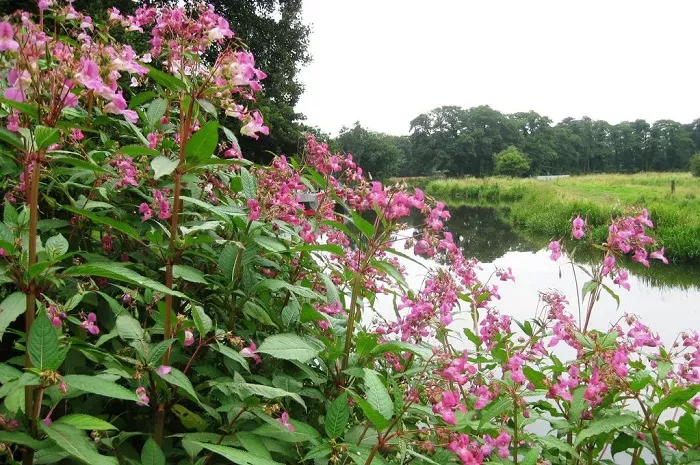In the UK, certain plants are causing significant concern due to their invasive nature and potential to cause damage. These plants grow rapidly and can have a negative impact on local wildlife and even the structural integrity of buildings. Homeowners need to be vigilant in identifying and controlling these invasive species to avoid legal trouble.
Invasive plants are those that thrive in the British climate and can quickly dominate resources such as sunlight, nutrients, water, and space. According to Environmental Controls, there are over 200 invasive plant species in the UK, with 36 classified as species of special concern. However, some are more common and cause more damage than others.
It is important to note that not all invasive plants are subject to the same regulations. Some are legally banned from being planted in the wild, while others are governed by laws that prohibit their spread beyond property boundaries. For instance, common ragwort can lead to legal issues if not properly controlled, as it is covered under the Weeds Act 1959.
Six banned plants are considered “common offenders” and require particular attention. These include Japanese knotweed, giant hogweed, Himalayan balsam, three-cornered garlic, rhododendron ponticum, and New Zealand pigmyweed. These plants are listed on Schedule 9 of the Wildlife and Countryside Act (1981), making it illegal to plant or allow them to grow in the wild.
Japanese knotweed has garnered significant media attention due to its destructive properties. It can grow through walls and break through underground drains. The plant spreads rapidly through an underground root system that can develop new shoots from small fragments. In the UK, it also benefits from having few natural predators.
If you spot any of these invasive plants in your garden, it is crucial to take action. Environmental Controls advises that invasive plants should be controlled or removed by a professional company, especially if they need to be disposed of at a licensed landfill.


